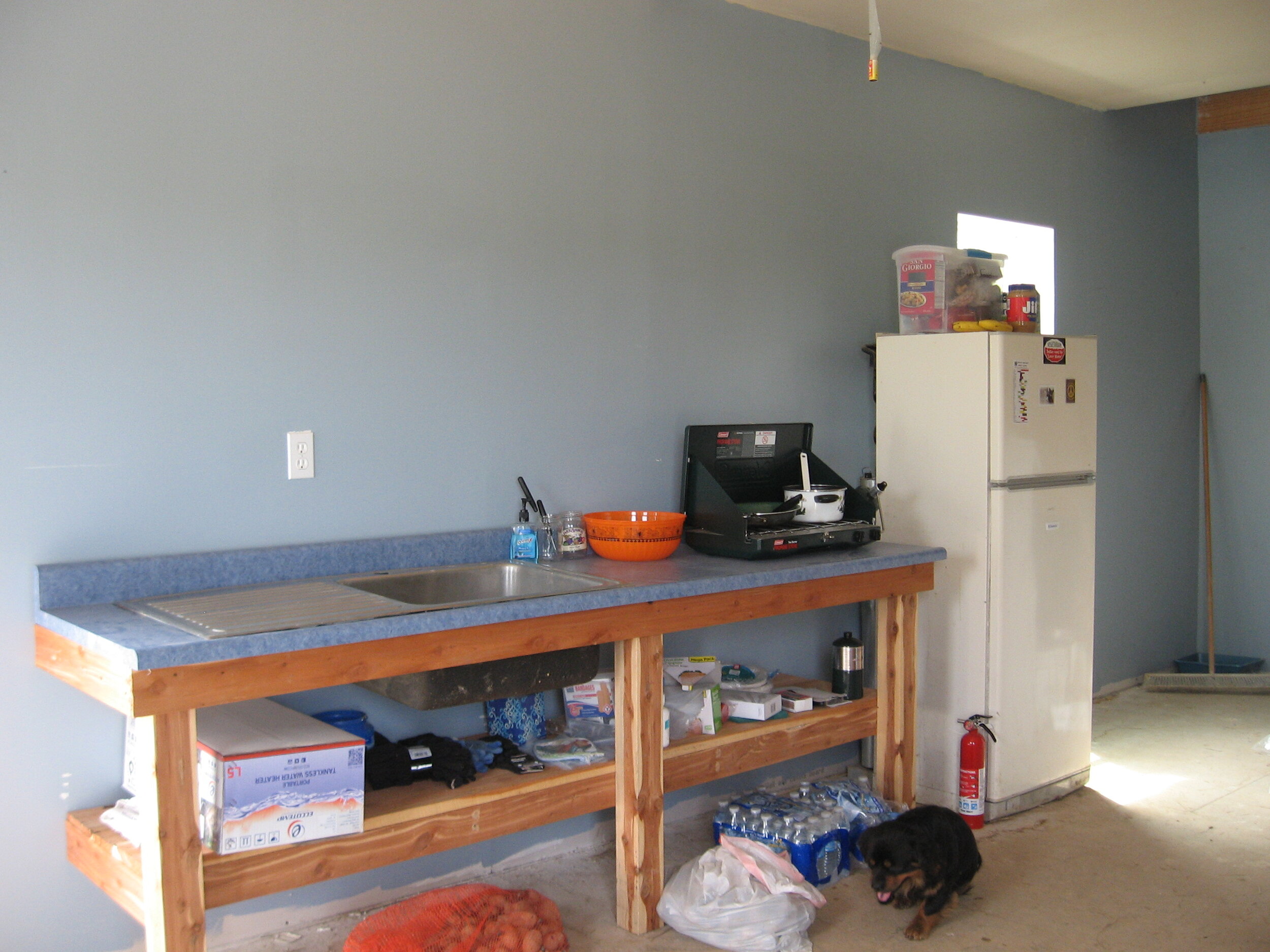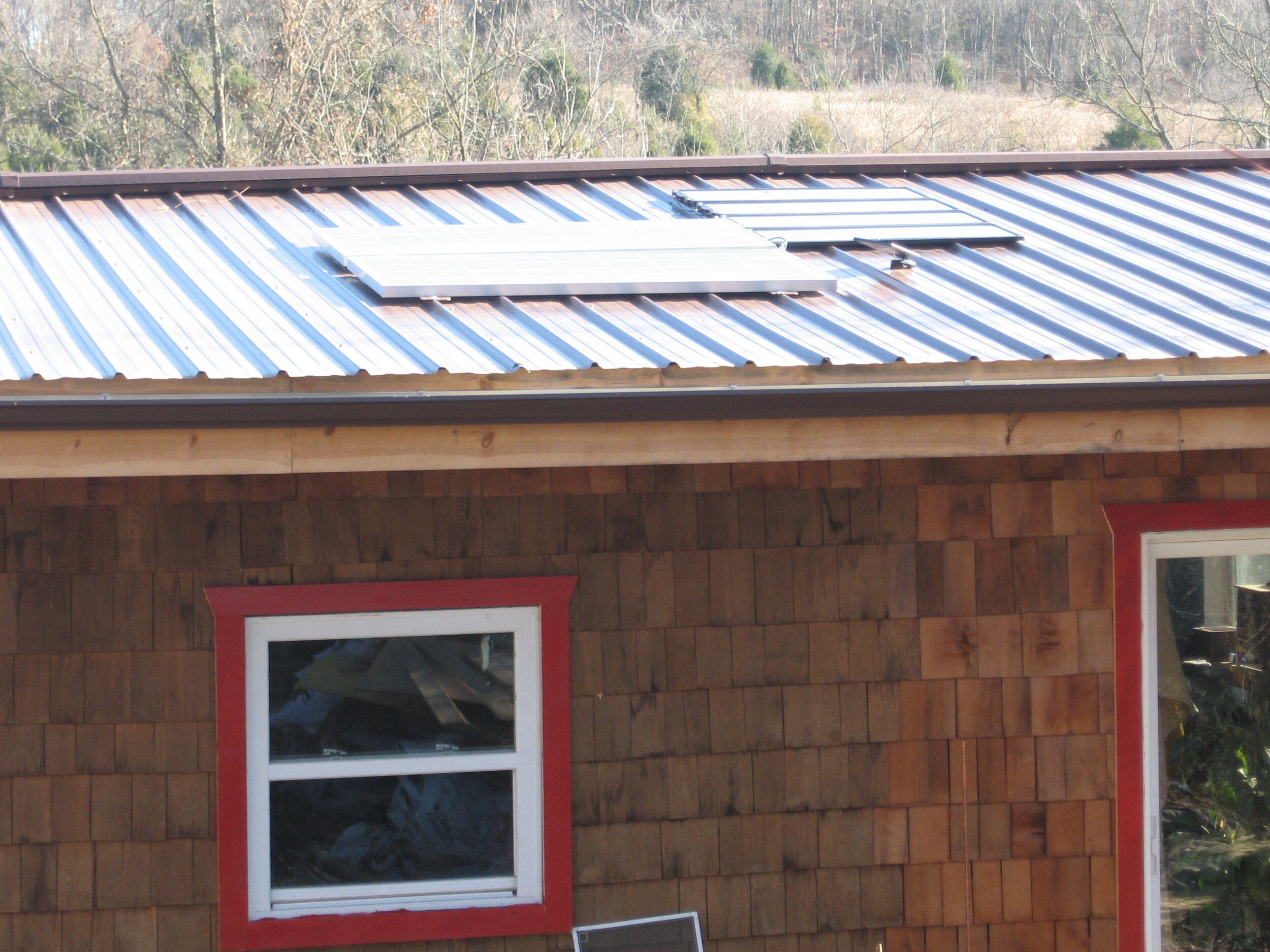One of the questions you will have to decide when you go off-grid is how are you going to keep your food cold. Refrigeration is something that we all need so that we can store food safely. In addition, freezing food is one way to keep food for future needs.
There are several choices in off-grid refrigeration. The main choice is between solar and propane.
There are also several smaller options. Root cellars, electric coolers or hauling ice might do for a short period of time but probably not something you want to depend on.
This article will look at the advantages and disadvantages of several types of off-grid refrigeration.
Keep reading!
Propane
My first choice was propane. I have owned both Serval/Dometic and Diamond propane refrigerators which had pros and cons. I had experience with propane refrigeration because I had worked for the Amish who do not use electricity.
I initially made the choice for propane because it was cheaper in the short run. I had a lot of money going into lumber and building supplies at the time so the extrasolar panels looked expensive.
I could get propane service and manage it over time. In addition, I had a propane stove and a propane wall heater for back up heat.
Lehman’s is one of my all-time favorite stores. I became addicted to them when I worked for the Amish and they are great for off-griders and camping enthusiasts alike.
Simple and Straight Forward
The propane refrigerator is fairly simple and straight forward. It does run differently from the electric fridge. However, once you get it set up and connected it is fairly trouble-free.
One problem I did have with both of my propane refrigerators is that the automatic ignition went out. The unit has a pilot light so relighting is only necessary if that goes out or you run out of propane.
This meant lighting by hand. Not a big deal, however, it is hard to do with one person as it is a two-step process.
How Does A Propane Refrigerator Work?
A simplified explanation.
A propane fridge uses chemistry to work. It contains a series of tubes along the back of the unit. These tubes contain ammonia. The pilot light heats the ammonia which travels through the tubes, releases the heat and then cools on the way down. Much like the radiator in your car.
Initially, Propane Worked Well
Initially, this worked well. Our primary heat was wood, however, when I was teaching full time I could not keep a fire going and having the heater on low kept the house above freezing.
However, as my thought process became more refined I began to worry about the effect of my propane use in relation to my carbon footprint. Propane is a fossil fuel and does pollute the atmosphere.
In addition, propane prices were rising and the propane company had this very unfair ruling. They required the customer to “fill” their tank every six months. Regardless if you had used the propane – you were charged. So instead of being rewarded for being a conservative consumer, I was punished.
Benefits of Propane Refrigeration
Simple to Use
Long-lasting – Servel models have lasted 50 years
Lower initial costs
Very reliable
Disadvantages of Propane
No Return on Investment
Must keep buying fuel
Risk of fire and carbon monoxide in poorly run or faulty unit
Remote locations may prohibit propane truck access
Propane pollutes atmosphere
Propane means you are “tied” to a utility
Produces heat – advantage in winter and disadvantage in summer
Cost of Running Propane
Diamond 10 cubic foot from Lehman’s $1675.00
Uses 1.3 pounds of propane a day = approximately 100 gallons a year = $250 per year
Hook up and connection = 100.00
First-year costs= $2025.00
(prices will vary with models)
Moving Away From Propane
This leads to my switch to solar appliances and doing away with the larger propane tank. I still use propane for a smaller camping style cooking stove but I have more control over that.
I also built my outdoor kitchen which aids in cooking. Even in the winter, it is fun to make a fire on the grill or in the brick oven. I can make several things at once and save foods for later use.
I also have a solar oven. This is great for sunny days when I want to make something more substantial like a stew.
Solar Refrigeration
Solar refrigerators are basically electric fridges. They come in DC and AC models. They are built just like the conventional ones.
You can purchase a refrigerator designed to run on solar or you can purchase a small dorm-sized conventional refrigerator that is very efficient. Then you just plug it into your solar system.
The reason I did not go with a solar refrigerator initially is that it needed quite a bit of solar panels. When you figure out your initial price point of purchasing the refrigerator plus the fuel or panels to get you started then propane often comes out on top.
In the long run, however, it is much more economical to go with solar. Solar will give you a return on your investment. Something propane will never do.
How Do Solar Refrigerators Work?
The DC models are powered directly from a solar panel. The current goes from the panel to a charge controller and into a battery. For example, the Sun Frost RF 12 model needs a minimum of a 135 panel and a 100 amp hr 12V deep cycle battery.
With this size system, Sun Frost states that the battery can keep the fridge going for three days in snowy or cloudy weather.
Benefits of Solar Refrigeration
Environmentally friendly
Allows for refrigeration without being tied to a utility
Greater return on investment. Will pay for itself over time.
Solar panels are long-lasting and the prices are coming down
You need more power in summer when there is more sun
Clean energy, no fossil fuels
Allows for independence and can be used in remote areas
Disadvantages of Solar
Initial expense
Cloudy weather may require backup charge with generator
Batteries need to be replaced every 5 – 7 years
Cost of Running Solar
The RF 12 (10 cubic feet) costs $2579 for the DC model
135-watt solar panel costs @ $225
100 amp deep cell battery costs = @$100
Charge controller = $60
Hook up and connection costs = 100.00
First-year costs = $2839.00
(prices are estimates, models will vary)
You can learn more about running appliances off solar in my article Can I Run “This” on Solar Energy
Other Ways To Keep Food Cool
There are other ways to keep the food cool.
Purchase Ice
You can haul ice. If you have a fishing or getaway cabin in the woods it may be OK to purchase ice from a neighborhood store.
This works for a short period of time. Your ice will melt eventually. How fast will depend on the quality of your cooler and how many times you open the lid?
Once the ice melts you are obligated to go out and buy more ice. This can get expensive.
Root Cellar
A root cellar is a great addition to any homestead. Root cellars will not keep food frozen but it will keep them cool and at a uniform temperature. They are typically the size of a walk-in closet so you have lots of room to store canning and fresh produce.
A root cellar that is a bit bigger can also double as an emergency shelter location.
You can build a root cellar into a hillside, in a basement or even in abandoned septic or underground cistern.
The classic DIY root cellar guide is Root Cellaring by Mike and Nancy Bubel
I love this book
Small Electric Coolers
There are a number of small electric coolers on the market. Some run off your cigarette lighter in your car, some can run off a golf cart battery. They are typically smaller but work well for one or two people or too keep high risk foods cold.
A smaller model like this one uses DC current. I used one like this when I sold at Farmers Markets.
Dometic also has a line of more serious coolers that can be run on AC/DC or solar panels. While these are pricey they do run well and are well made. They work well if you need something portable.
However, if you need refrigeration in a permanent cabin or house I would go with a SunFrost or simply a smaller conventional fridge.
Author, Ame Vanorio has 25 + years of experience living an off-grid sustainable life. She is the director of Fox Run Environmental Education Center and a licensed wildlife rehabilitator. She teaches classes locally and online about organic gardening, green building, living off-grid and wildlife conservation. Check out our EVENTS page. In addition, she is a freelance writer and writes for several gardening, tiny house and pet websites. She lives on her Kentucky farm with a myriad of domestic and wild animals.
Affiliate Information
As an Affiliate Associate with select sites, Fox Run Environmental Education Center may earn fees from qualifying purchases. We only refer products that we have used and will use again. As a non-profit 100% of monies earned goes into our education and wildlife rehabilitation programs. There is no extra cost to you! Just enter the site via our recommendation and purchase whatever it is you want.



